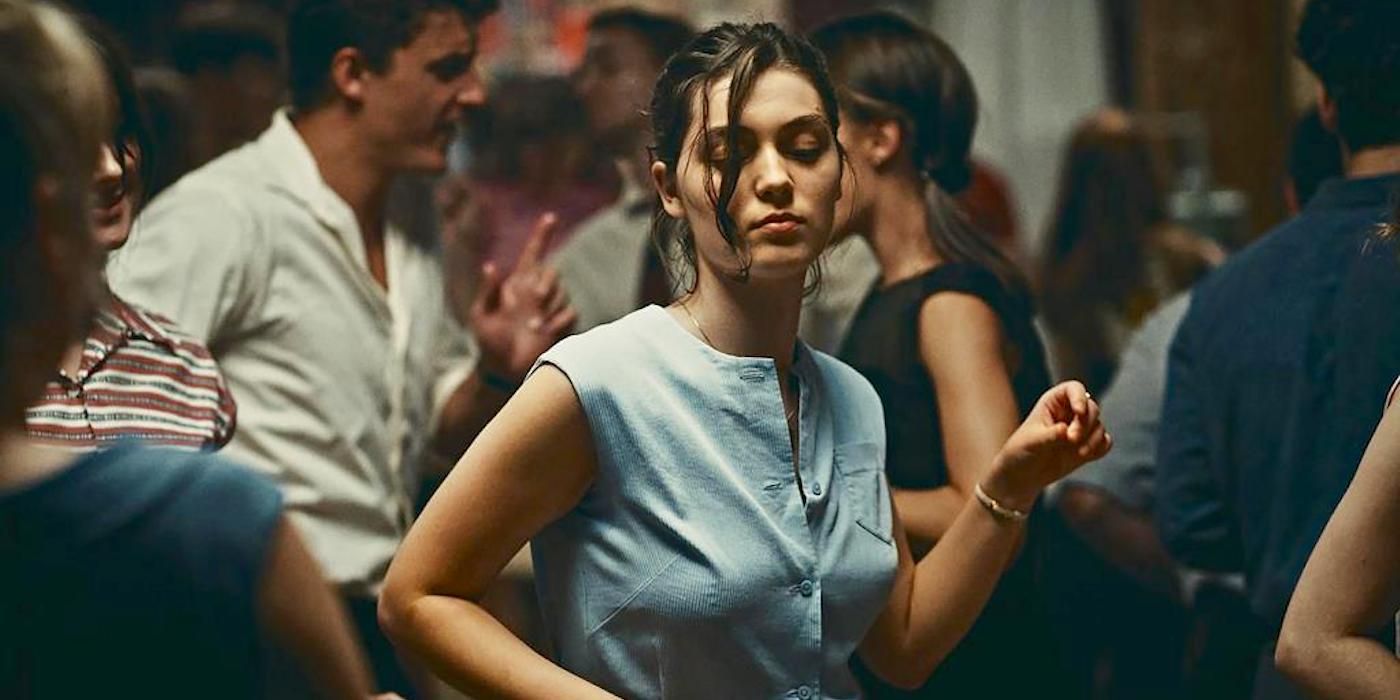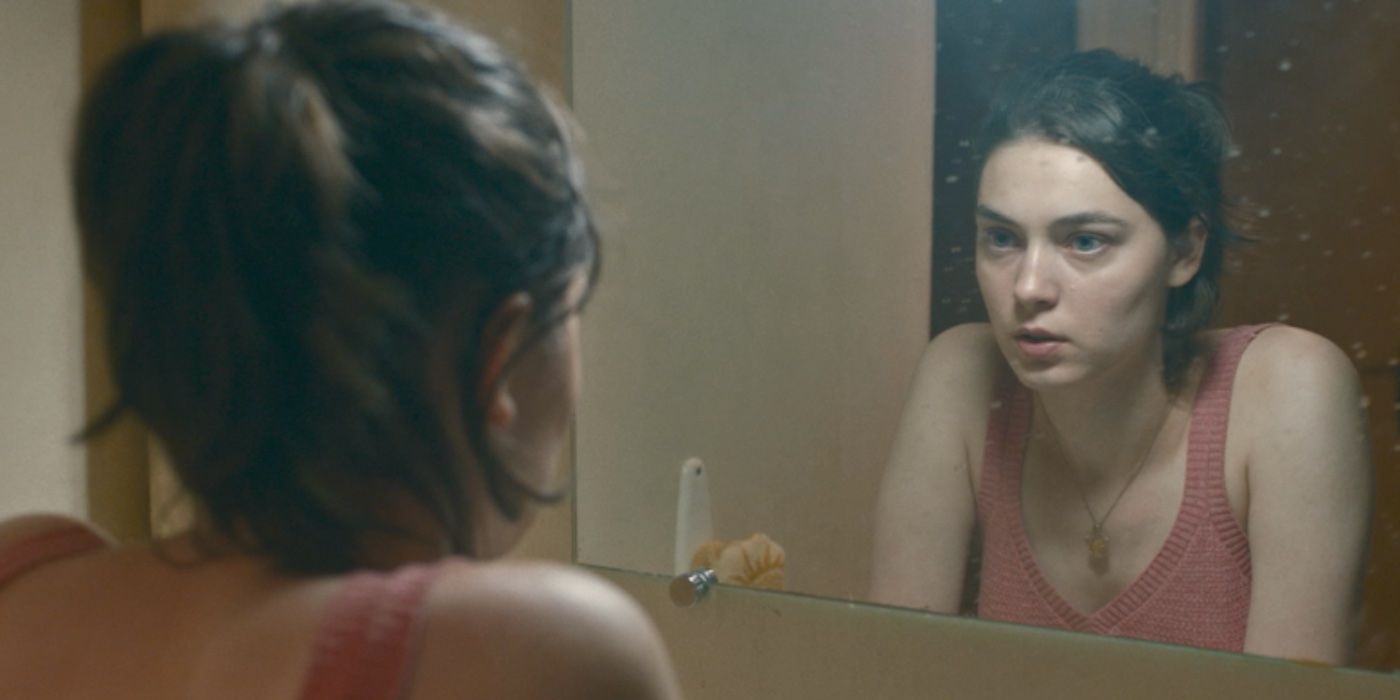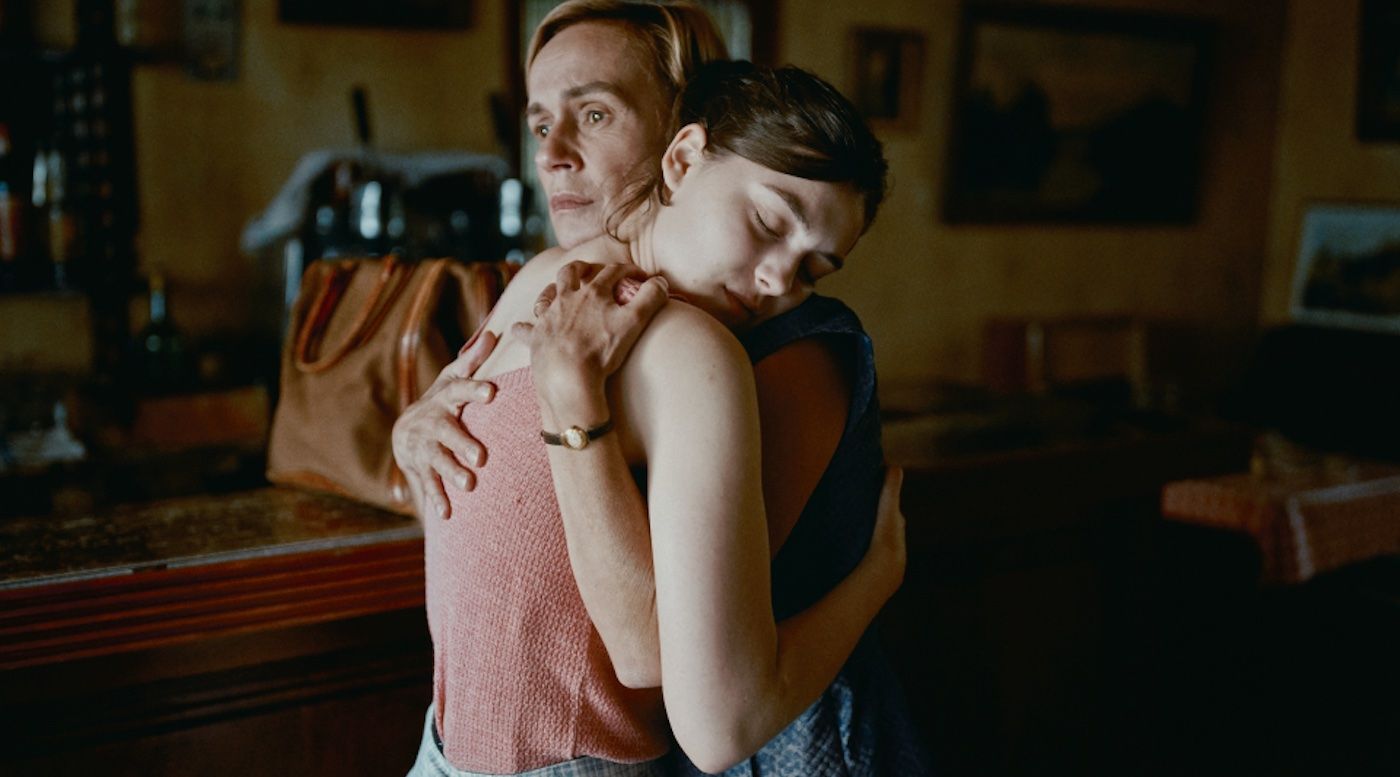"What's your problem?" "Solitude." This simple yet poetic exchange from Audrey Diwan’s harrowing new film, Happening, contains multitudes of meaning. What is seemingly a throwaway conversation that could have easily been overlooked becomes as illuminating and devastating as the magnificent film itself. With a single word of response, an arresting Anamaria Vartolomei captures the crisis facing her character, Anne. A college student studying literature in France in the 1960s, she enjoys going out dancing with her friends and has big aspirations for her future.
Based on the novel of the same name by Annie Ernaux, the film is an outstanding cinematic work that won the prestigious Golden Lion at the Venice Film Festival and garnered critical acclaim coming out of the most recent Sundance Film Festival. It is an incredibly well-acted character study, a focused portrait of its era, and, most centrally, an unflinching look at how the structural imposition of oppressive fear completely takes hold of a society. When it does so, the people who are left behind must face the unnecessarily terrifying world alone and without resources. They’re abandoned to the callous cruelty that endures beyond the confines of any one place.
This all comes into focus when Anne discovers that she is pregnant. It is information that is presented in the cold confines of a doctor’s office, a meteor that shatters through Anne’s world. She understands what this means for her in a country where, at that time, abortion is illegal. As denial and eventual fear play out across her face, she desperately pleads with the doctor for help. He attempts to silence any conversation about potential health remedies, terrified himself as he says that “the law is unsparing” if he were to help her. It is the beginning of a film that shows the suffocating power of silence that is unrelenting. It is an utterly immersive story told in a world ruled by the all-consuming force of legalized terror, a gag order against compassion that threatens to crush anyone caught in its grasp. It reveals the isolation that women face whenever they become the target of laws that criminalize them.
It is in this isolation that the film captures an enveloping experience that is as riveting in its craft as it is heart-wrenching in its subject matter. While the original novel was released in 2000 and the film made its premiere more than a year ago, the events of the last week have brought it close to home where Roe v. Wade may soon be overturned in the United States. It is a reminder of its continual relevance that transcends time and space. As the film shows us, abortion being made illegal doesn’t stop the procedure from happening. Instead, it just forces people like Anne into desperate situations where they must hide from everyone around so as not to get found out for trying to exercise a simple choice over their own bodies. Even when she tries to talk to her friends, she is met with a stifling silence as they all fear they could be arrested for getting involved. It is a depressing moment though a truthful one, revealing how the people closest to Anne won’t even speak with her about the subject. This builds tension in the quietest of scenes, leaving us gasping for air as we see people ignore her again and again. As the film gently yet grimly moves through time with title cards marking the weeks passing, you want to scream for someone to just at least acknowledge what is happening.
Diwan, in what is remarkably only her second film, stages these scenes around a quiet terror stemming from being abandoned by everyone. It uncovers how the danger facing Anne doesn't come from a potential abortion but from society’s ambivalence towards her well-being. Sometimes, it is closer to hostility, with one doctor going as far as to lie to her about her own health. He does so without any fear of repercussion as she could never disclose what happened without being railroaded herself, leaving her vulnerable to his manipulation. In portraying the crushing weight of institutionally enforced silence, Diwan creates something that more closely resembles a horror film.
The direction is both precise and persistent, letting scenes play out with a sense of focus on Anne in every moment so that we see the gradual eroding of her hope for herself. Even when there are people who offer to help her under the cover of darkness, conversations remain hushed and cautious. It creates a devastating sense of how dire life is for Anne while never losing sight of her humanity at the core of it all. When people are prohibited from even talking to her, the film fills the vacuum of their silence with an overwhelming sense of fear. It takes us into her shoes, showing the everyday consequences that come from society targeting those just trying to survive.
The final act is a painful experience as it doesn’t shy away from the realities of the precarity Anne has been forced into and what it has all been building to. Much of this is watched with a pit in your stomach as you are put through the wringer of anxiety and anger, clinging to the hope that she will find a way out while knowing it didn’t have to be this way. The cruelty that was inflicted upon her was a choice, a calculated measure of control. It is a testament to Diwan’s talents that it is all so impactful in how she excavates this, showing it frankly and without pretense as it would actually be in these moments.
Yet, what I keep coming back to is not these ending moments but Anne’s answer in the middle of the film. Solitude is what proved to be her greatest problem, a result of how she was unable to get support anywhere which ended up compounding everything else she had to face. It is hard to glean optimism from this information, though the film provides a glimpse of what can happen when we stand for others who have been targeted by the very institutions of our society. It is in those who risk everything for others where the film finds a sense of the collective revolutionary power to fight against the pervasive forces of fear and control. It isn't easy, though this makes it all the more necessary to be afraid and help anyway. This is the film's concluding revelation, a truth felt in the subtle triumph and tragedy of the lasting final frames.



